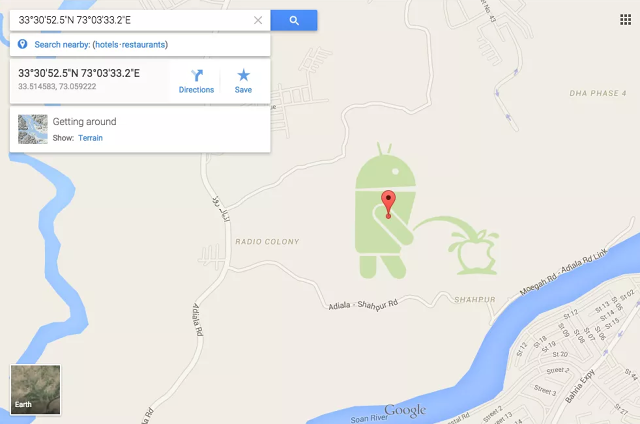This is kind of cool, kind of terrifying:
It is billions of people’s maps, according to Google, but it is also Google’s map, and as the company’s Geospatial Technologist, Parsons’s job is meant to make users and governments feel comfortable with Google’s control of it. As it seeks to maintain growth, Alphabet Inc. has bet big on personalizing Google’s flagship products—search, maps, and mail—which means capitalizing upon ever more sensitive information about where users go, and what they do there.
Geopolitics today is still largely the geopolitics of yesterday: land vs sea power (though the sphere of ocean action has shifted to the Pacific), superpowers arming each other’s neighbors, “New Silk Roads”, etc, etc. But geopolitics today is also the actual politics of geography, from the global to the personal level, and is no longer practiced exclusively by nation-states.
Google’s brand of cultural imperialism is maybe more pernicious than any one country’s, since its ultimate goal is absolute, unquestioned ubiquity:
“That is my job, to be that kind of lightning conductor, good and bad,” [Parsons] says. “My job is about evangelism, trying to get people to see the world the way that we see the world.” […]
To compete with a range of tech titans — besides Apple, companies like Nokia, TomTom, and Microsoft have invested heavily in mapping technologies — Google is focusing on personalization. Parsons’s hope is that using an increasingly personalized Google Maps—and syncing one’s location with surrounding devices, from your cell phone to your garage, heater, and car—will pass what Google calls “the toothbrush test.”
“Is the technology so valuable, so familiar, that you use it every day, that you don’t really think about it?” Parsons asks. “To get that level of trust, we need people to understand and be completely confident with it. You only use your toothbrush every day because you’re completely confident that it’s not poisoning you, it’s not going to make your teeth fall out.”

It’s the tech lords’ world grid, we’re just living on it. The article coins the fun phrase “surveillance as cartography” — I think it’s the other way around, though.